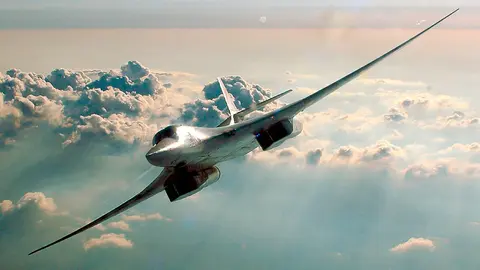The White Swan, Russia's new nuclear threat
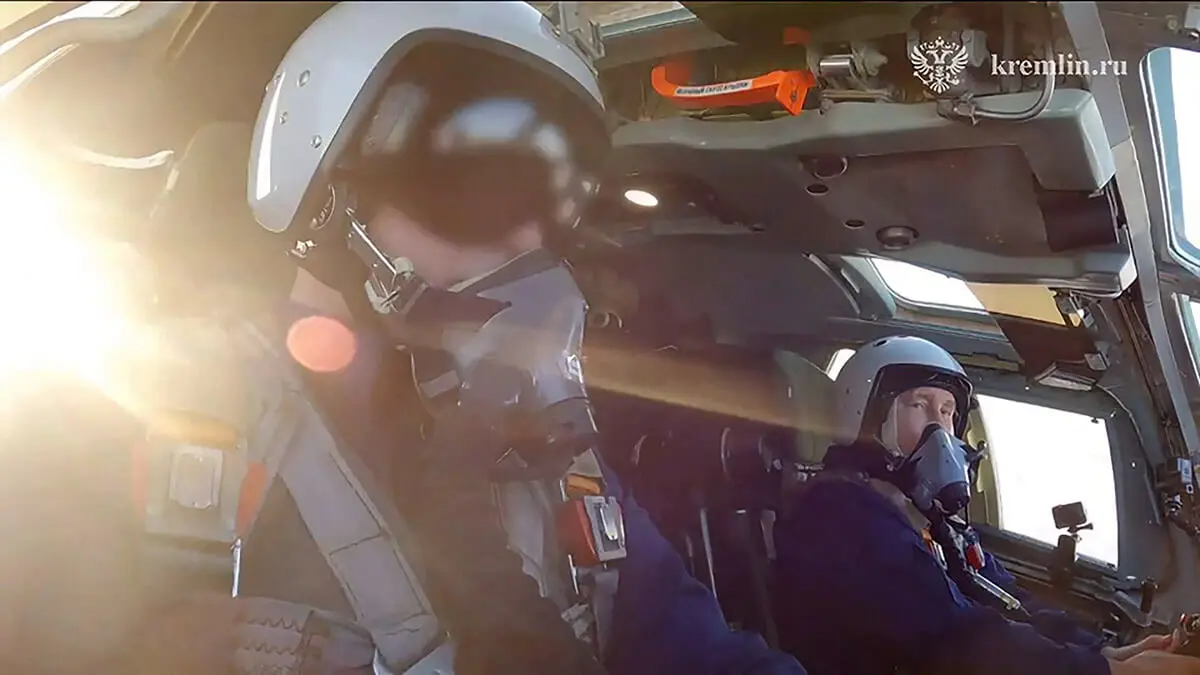
The drift of the Russian Navy is taking shape and the rescue of the "White Swan" known as the "Flying Monster" is yet another sign of the consequences of the war with Ukraine.
The appearance of this new bomber has set off alarm bells in the United States and its allies because of its nuclear range. The rescue of this nuclear bomber has been the tip of the iceberg, an iceberg that began with the refit of the Admiral Pavel Nakhimov.
The war against Ukraine has become a war of attrition, a trench war that is stretching the Russian machine to the limit. The fruits of the Ukrainians' efforts are beginning to undermine Russian attacks which, while having the same effects, are increasingly costly for the Russian economy. Two years of war are taking their toll on the Russian economy.
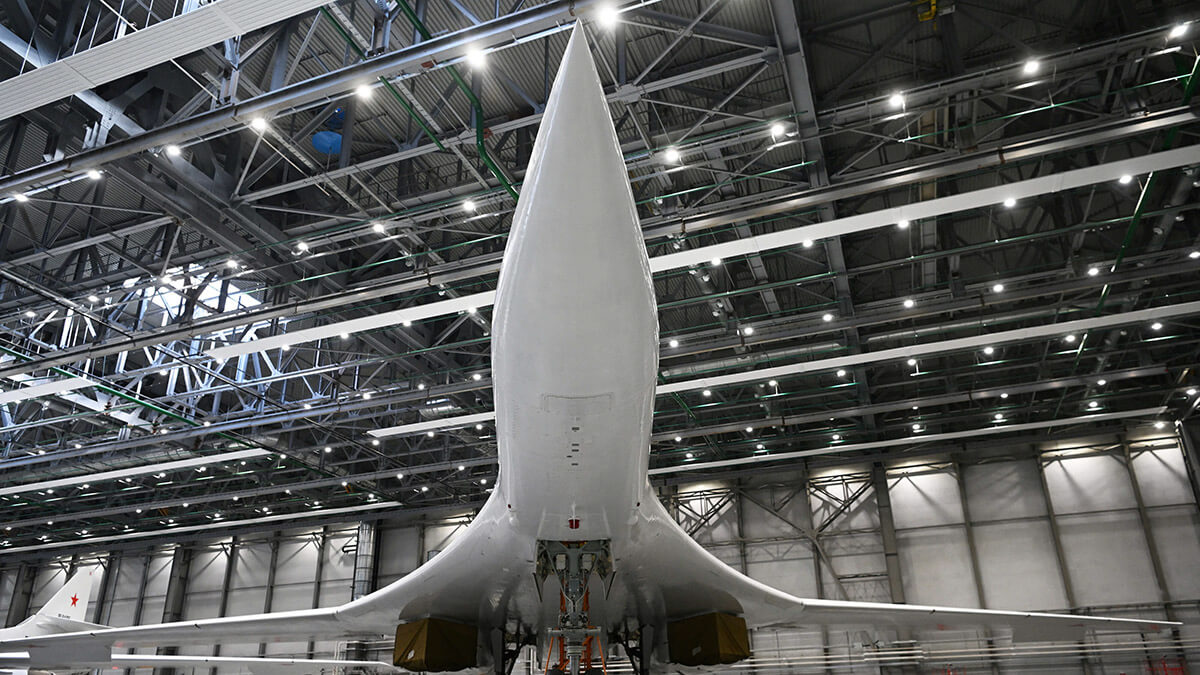
Russian media are echoing the image of President Vladimir Putin at the controls of the bomber. In an interview on state television, Kremlin spokesman Dmitry Peskov confirmed that the flight lasted 40 minutes.
Characteristics of the "White Swan"
The TU-160 fighter jet is designed to strike long-range targets in isolated areas with conventional and nuclear weapons. These bombers form an important part of Moscow's long-range capabilities.
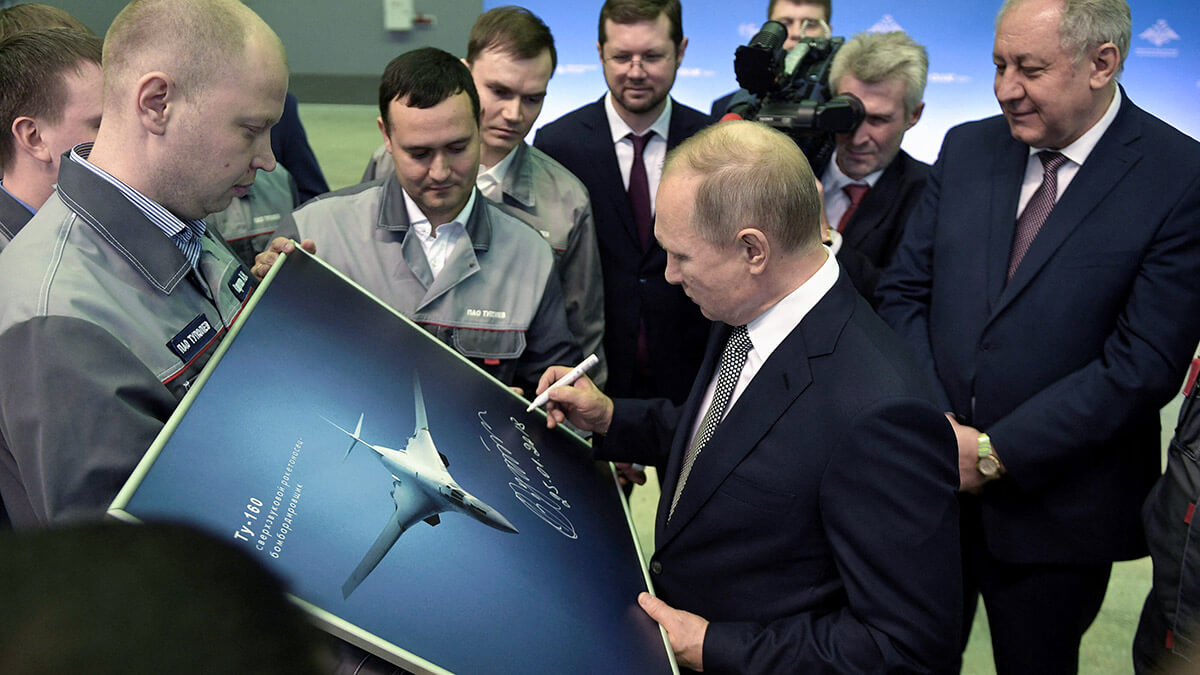
The aircraft first flew in December 1981 and was the last strategic bomber used by the Russian military during the Cold War, with Russian authorities resuming production in 2015. The new version of the Tu-160 was launched in 2017 and made its maiden flight in early 2018.
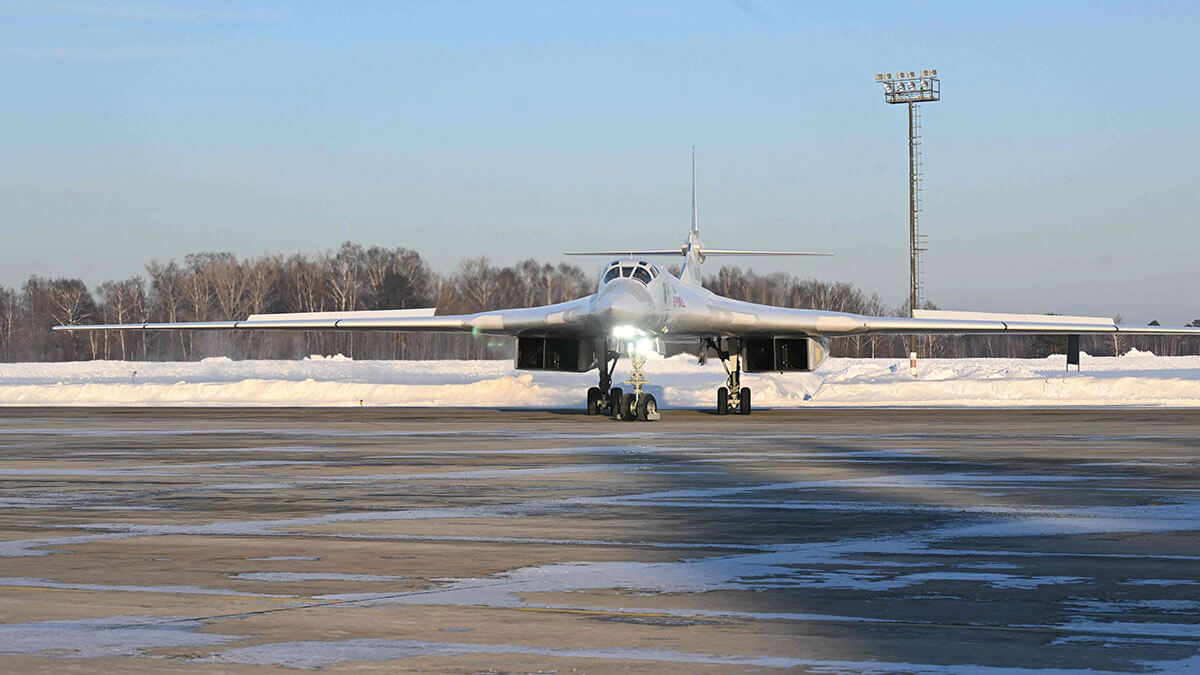
In 2018, Russian President Vladimir Putin decided to build a new strategic aircraft based on the "White Swan" design and commissioned the plant's management to implement this complex technological process, while preserving the previous form of the aircraft's structure.
The bomber, together with the TU-160M bombers, forms the basis of the Russian Aerospace Forces' long-range aircraft. The TU-160M is designed to attack enemy targets at long range using nuclear and conventional weapons. It was upgraded in two stages, with the first stage removing some existing systems, such as the bomb targeting system, and installing the new K-042K-1 navigation and autopilot system.
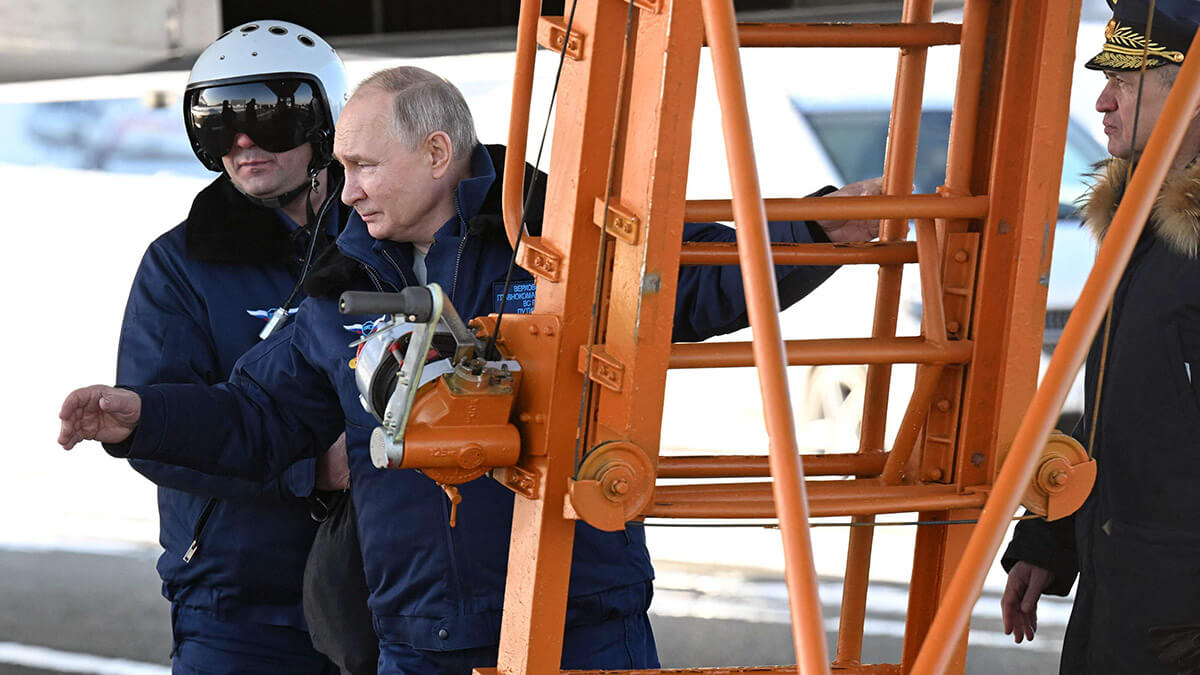
The aircraft is equipped with a new-generation NK-32-02 atmospheric engine, which allows it to fly at an altitude of 16,000 metres and a distance of 13,000 km.
Russia's "White Swan" is also equipped with the new Novella NV1.70 radar, a "computer-controlled glass" cockpit, modern communications equipment, anti-jamming equipment, modern conventional weapons and nuclear weapons as part of the bomber's radio.
With a crew of four, the TU-160 can carry up to 12 X-101 cruise missiles with conventional warheads (high-explosive, cluster, high-explosive and X-102 nuclear).
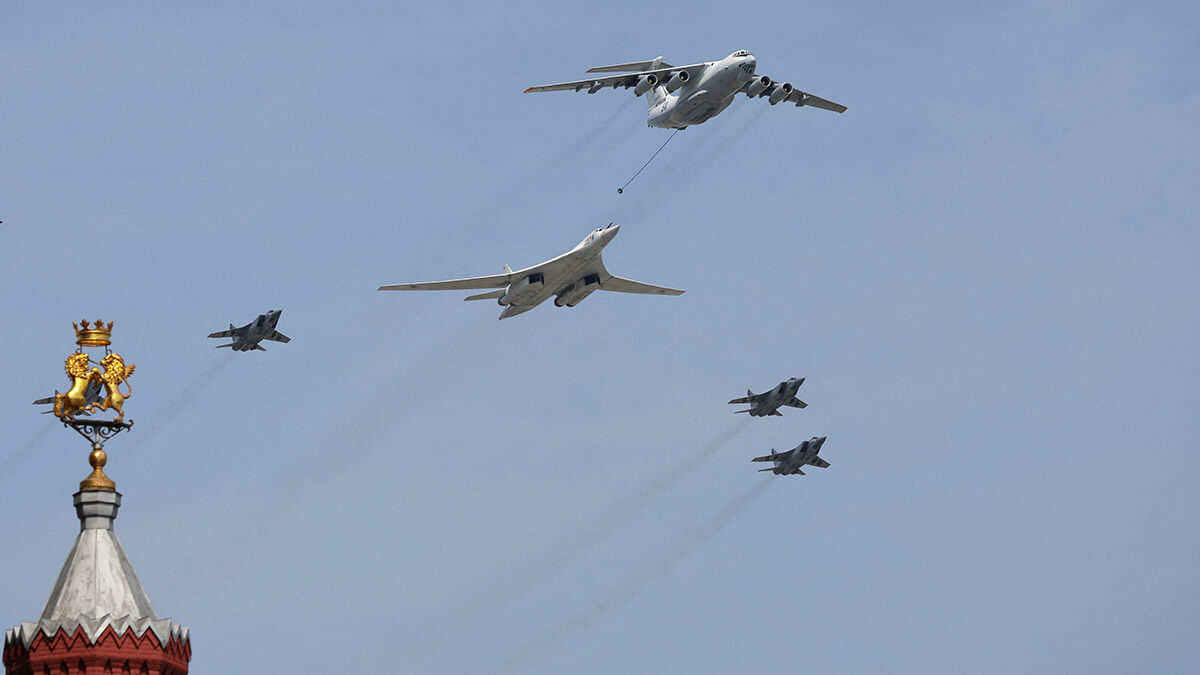
Demonstration of power as a smokescreen
In the current Russian context where the recent death of Alexei Navalny and the international crisis that Russia has been going through since the beginning of the "special military operation", the smokescreen is that, in the absence of means, the Kremlin has decided to repair and condition all the arsenal it possesses, in a context where elections have already begun with the first early voting since the CEC (Central Electoral Commission) informed that the most remote populations can begin to cast their votes.
By definition, a smokescreen is a set of facts or circumstances designed to hide the truth and distract people. In other words, it focuses the frame on something so that other things are forgotten or overlooked.
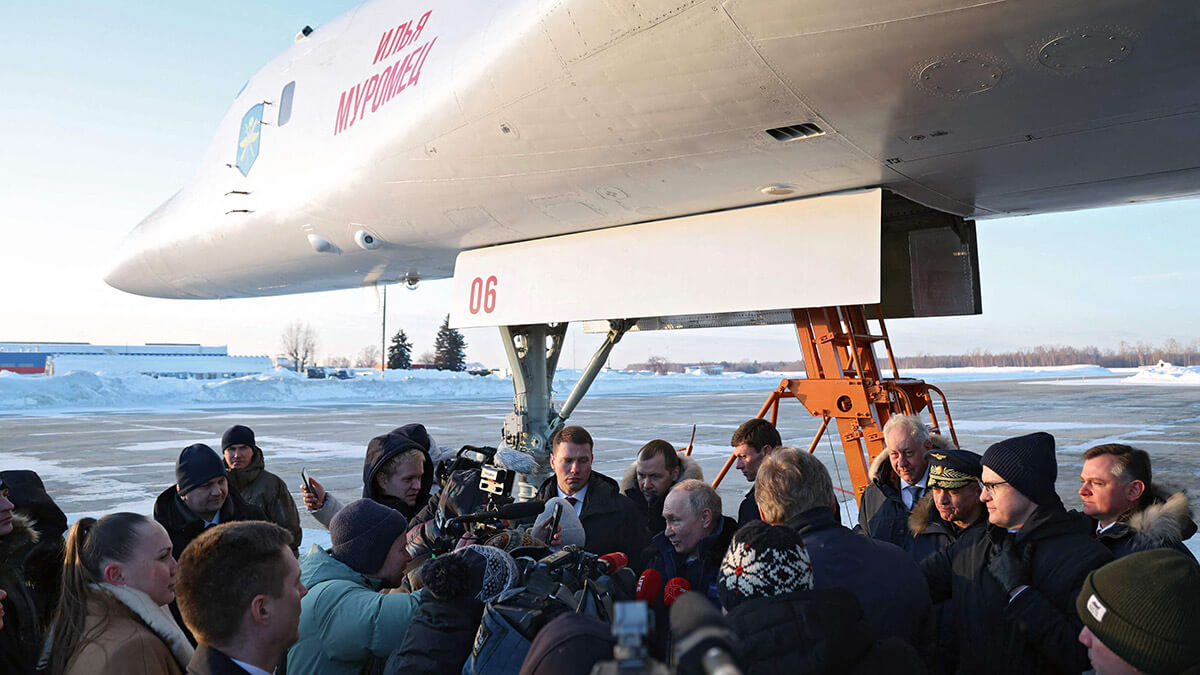
Most Western experts agree that transparency is not a hallmark of the Eurasian giant's electoral process, even by the admission of regional allies such as China. Sweden's V-Dem institute gave election transparency a score of 0.25 on a scale of 0 to 10. Transparency International's Corruption Perceptions Index ranked Russia 138th, the worst in Europe.
The Levada Centre, a non-governmental organisation that conducts opinion polls, said President Putin's approval rating exceeded 80%. The attack gave Putin a nationalist message that mobilised Russians, and the war maintained broad support even as Russia's military campaign waned in 2023.
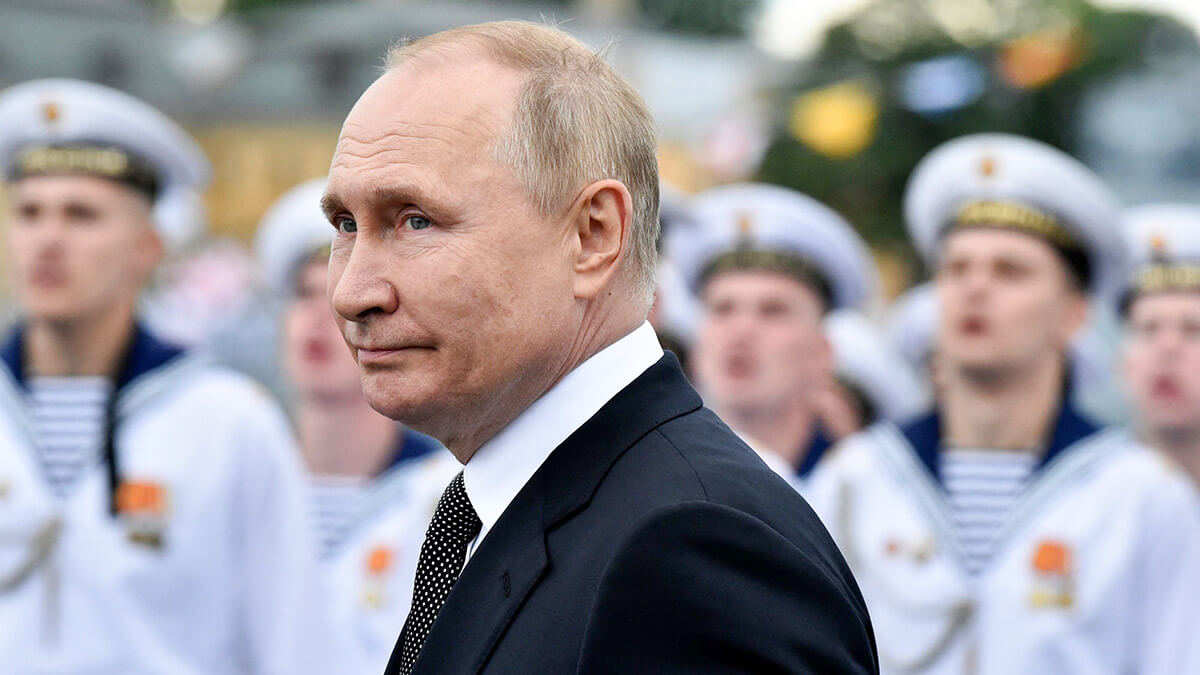
As elections approach, national security is a top priority for Russians. Ukraine's attacks on areas bordering Russia have made the war feel like home to many of its citizens, but support for a so-called 'special military operation' invasion remains strong.

